Alcohol Awareness
Taking a break or cutting back on alcohol every now and then can be a great way to support your health and wellbeing.
Alcohol can play a huge part in our social life and daily routine, but regular drinking (and especially heavy drinking) can have a detrimental impact on our physical and mental health.
This blog isn’t to tell you to avoid alcohol*. There’s nothing wrong with enjoying a glass of wine with dinner or going down to the pub with friends for a few beers. I like a drink myself!
Instead, I hope this blog helps you understand a bit more about how much is too much and the impact that drinking can have on our health.
And if you’re wondering how many units and calories are in your favourite drink – I’ve got this covered too!
*unless you want to, have a health condition which could benefit from alcohol abstinence, or if you’re underage
Alcohol Recommendations
In the UK, it’s recommended that we limit our alcohol consumption to 14 units per week. If you regularly drink up to 14 units a week, it’s better to spread this over 3 or more days.
However, taking breaks from alcohol is important for our health and wellbeing due to its short and long-term effects.
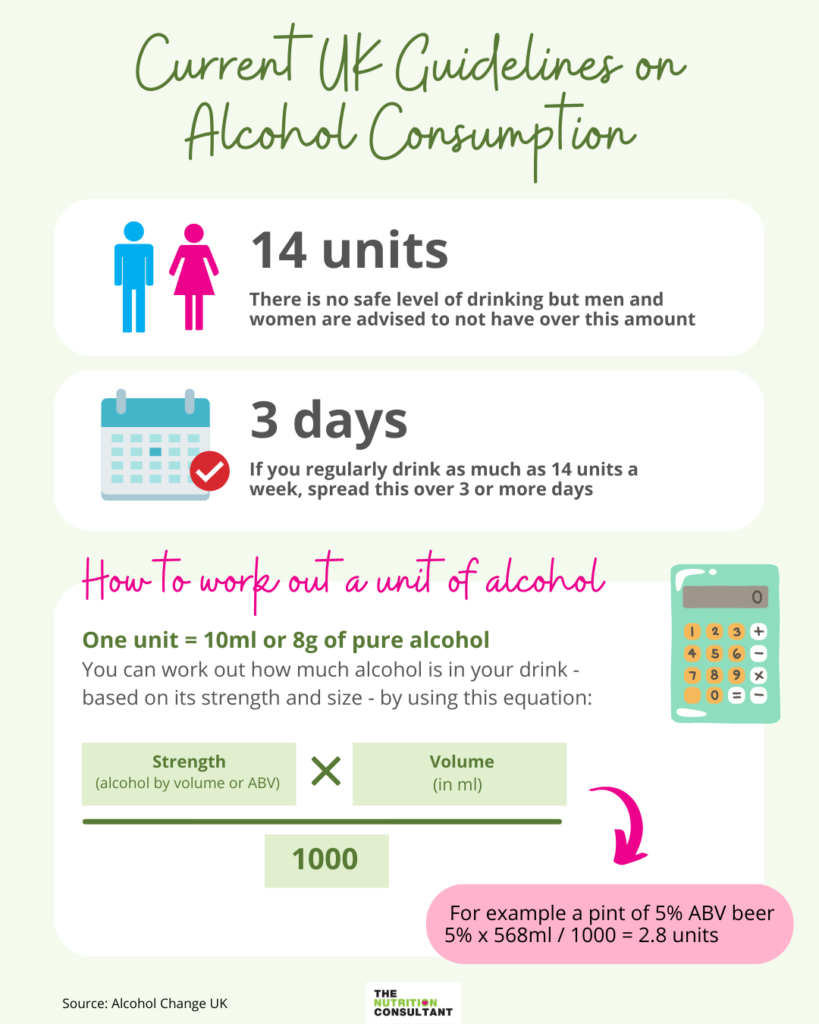
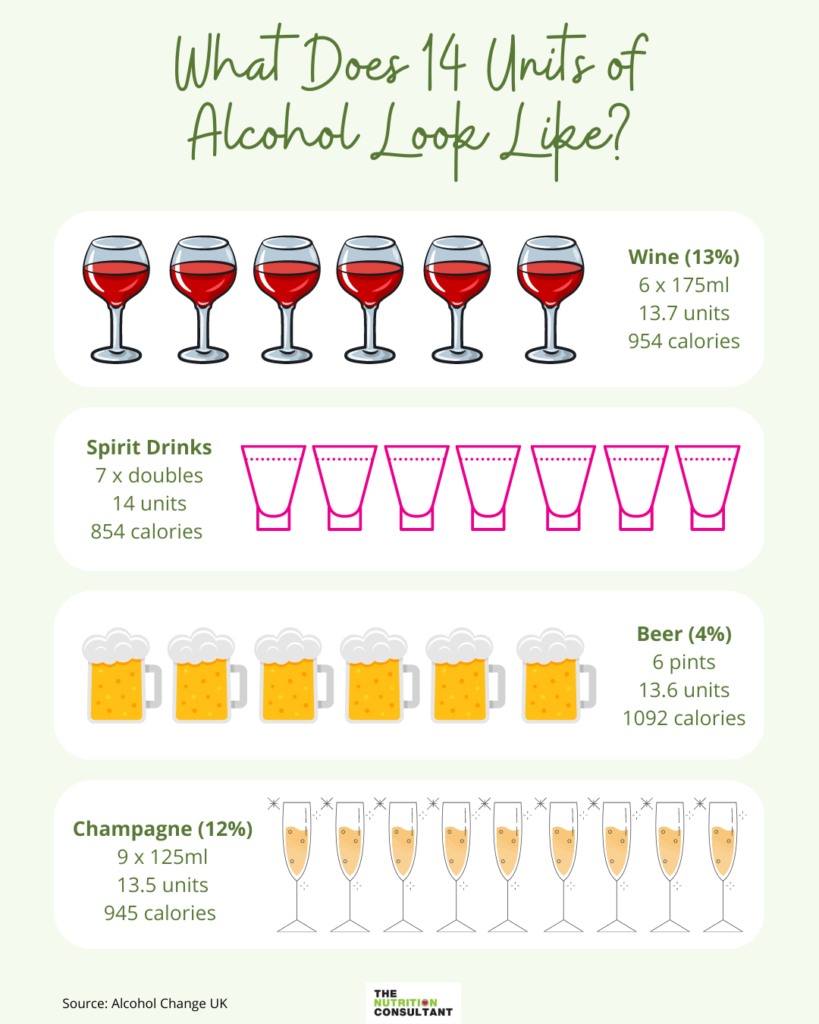
Effects of alcohol
The effects of “too much” alcohol can be seen with hangovers, but a few glasses of wine at the end of the day can easily creep up across the week.
So why is continual excessive drinking a problem?
Short Term
In the short term, excessive drinking can result in an increased heart rate, altered reaction times and coordination, headaches, dehydration, nausea, vomiting, diarrhoea, indigestion and alcohol poisoning.
A night of drinking can also make you feel exhausted the next day – even if you were in bed by 9pm. This is because alcohol interferes with the body’s chemical processes, resulting in less time spent in the restorative stages of sleep (REM). (1)
Even 1 or 2 glasses of wine before bed can significantly impact the quality of your sleep. A 2018 study found that drinking low amounts of alcohol (less than 2 servings per day for men or 1 serving per day for women) reduced sleep quality by 9.3%. (2)
Unsurprisingly, this impact on sleep quality was even greater the more alcohol people drank. Sleep quality decreased by 24% for moderate drinkers (2 servings/day for men and 1 serving/day for women) and 39% for heavy drinkers (more than 2 servings/day for men or more than 1 serving/day for women).
This is one of the reasons why it’s a good idea to have at least a few alcohol-free days a week.
Long Term
Excessive drinking can also have a detrimental impact on your physical and mental health in the long term.
Regularly consuming above the recommended limit of 14 units per week can increase your risk of long-term health conditions such as cancer (mouth, breast and throat), stroke, heart disease, liver disease and pancreatitis. (3)
In addition, heavy drinking can have a worrying impact on mental health. Alcohol is a depressant and can affect the chemicals in the brain, also known as neurotransmitters. It can slow down how the brain functions and stop these chemicals from working correctly. This can have a negative impact on mental health and increase the risk of feeling anxious or depressed.
You can learn more about the effects of alcohol on mental health here.
Excessive alcohol intake can also lead to weight gain, as alcohol contains more calories than most people realise (see examples below). Part of the confusion is due to a lack of nutritional labelling, as manufacturers don’t legally have to label their drinks, so many of them don’t.
My advice is to keep track of how much alcohol you’re drinking and try to stay below the 14-unit limit. There will be the odd occasion when you just want to enjoy yourself and not think about the units – maybe on your birthday weekend or during Christmas, but if you let this become a regular occurrence, it could significantly impact your health and wellbeing.
Units and Calories in Alcoholic Drinks
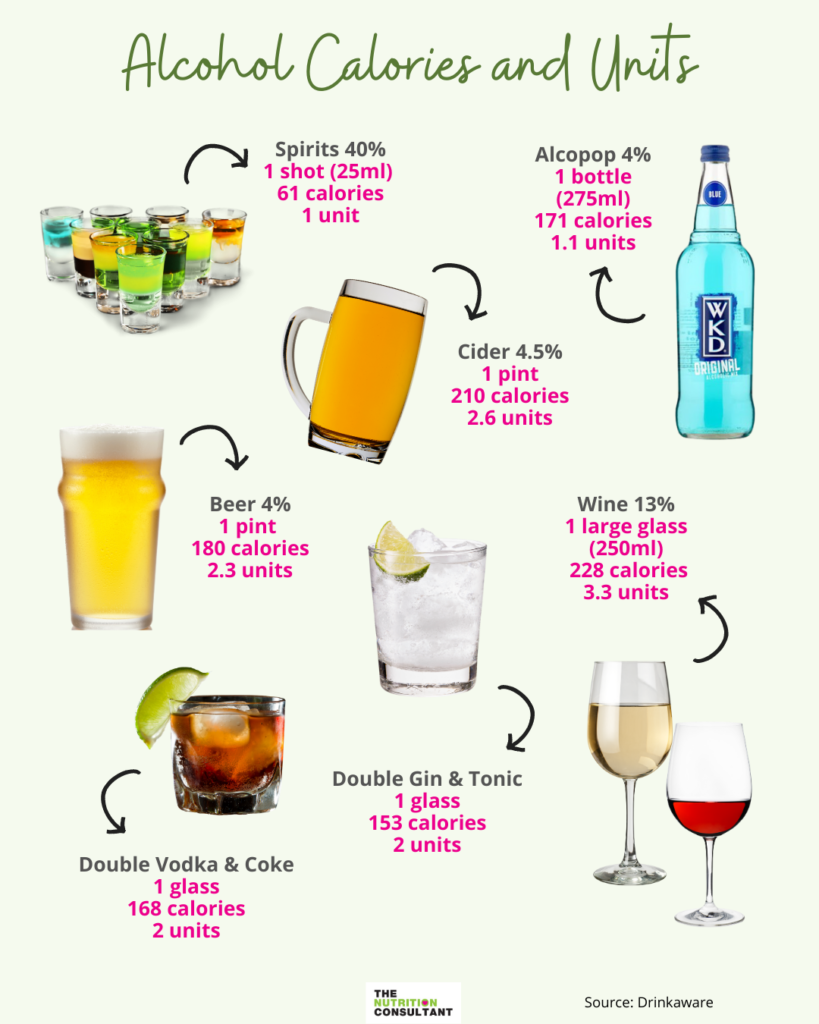
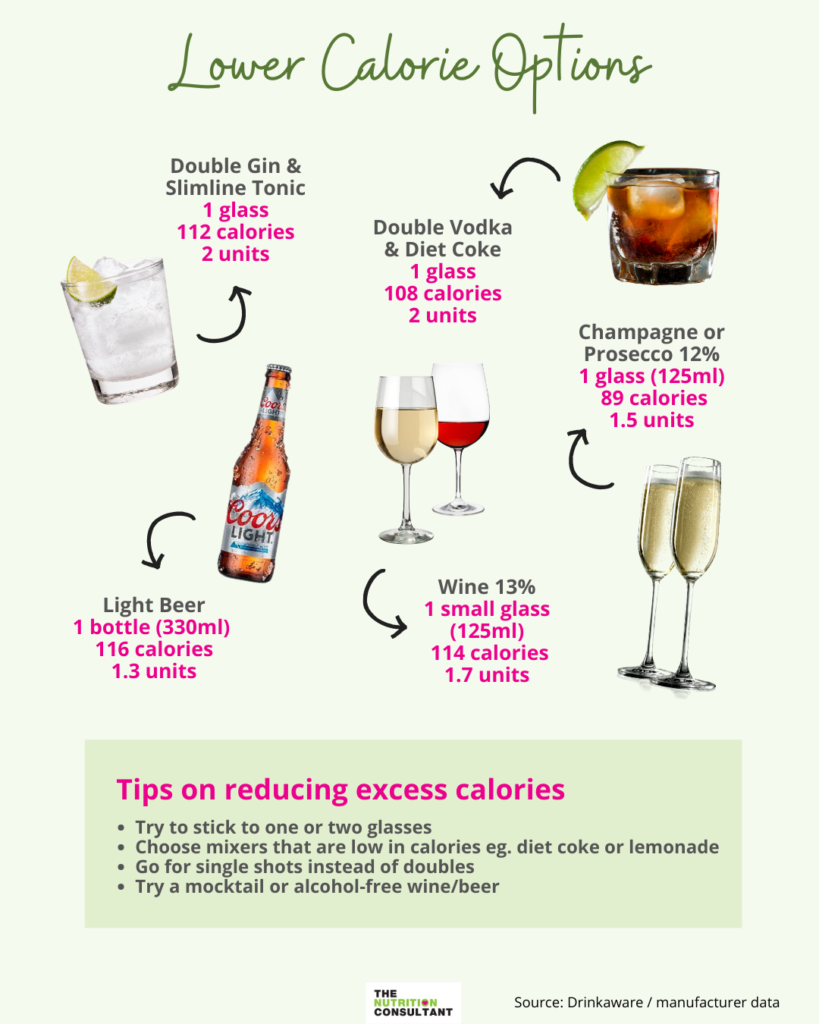
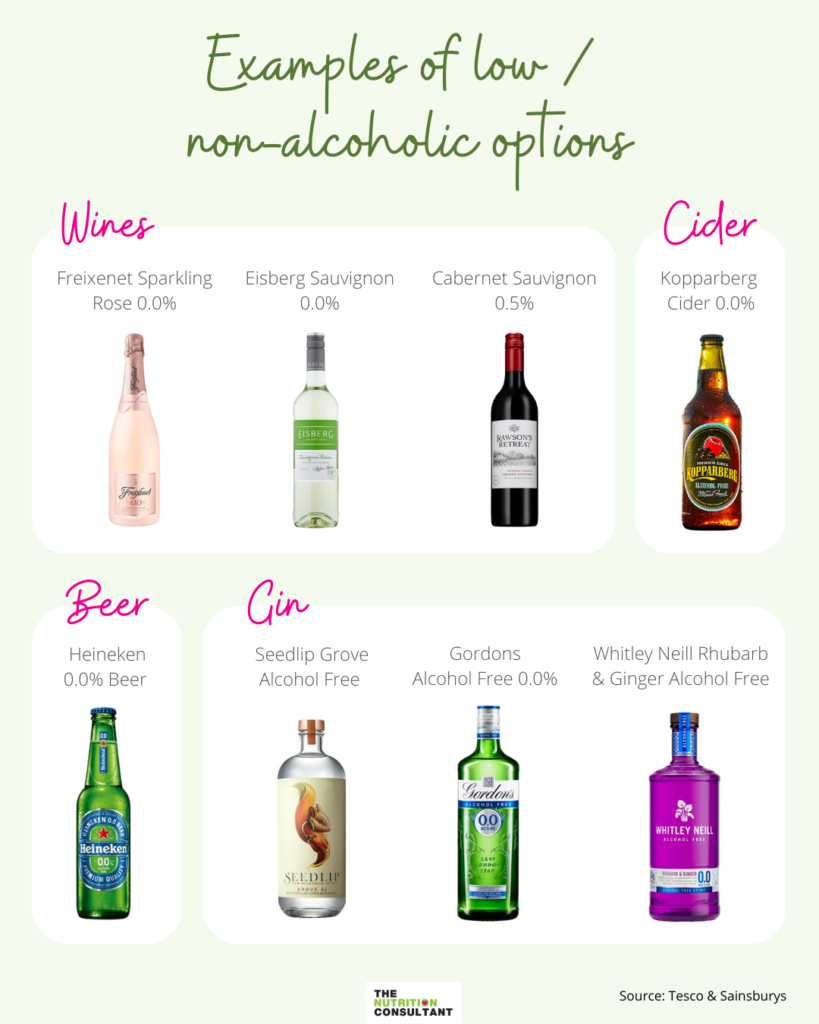
Alcohol Alternatives
Retail and consumer insights consistently report that alcohol alternatives will continue to increase in choice, demand and flavour.
If you’re in the mood for a ‘fun drink’, consider something that doesn’t mimic alcohol but still tastes great – without all the added sugar. Kombucha is hugely popular right now, and there are plenty of fantastic low-sugar options on the market! Served in a glass over ice, It’s a refreshing choice if you’re looking to cut back.
There’s also some flavoured sparkling waters popping up on the shelves at the moment that are low in sugars and are free from sweeteners. So if you want the satisfaction of opening a can of something to have with your friends and family, this is another great option!
Summary
UK alcohol recommendations:
- Limit alcohol consumption to 14 units of alcohol per week
- If you regularly drink as much as 14 units a week, spread this over 3 or more days
In the short term, drinking too much alcohol can result in increased heart rate, altered reaction times and coordination, headaches, sleep issues, dehydration, nausea, vomiting, diarrhoea, indigestion and alcohol poisoning.
In the long term, continual excessive drinking can increase the risk of stroke, heart disease, pancreatitis, liver disease, many cancers, depression and weight gain.
References
- Colrain, I.M., Nicholas, C.L. and Baker, F.C., 2014. Alcohol and the sleeping brain. Handbook of clinical neurology, 125, pp.415-431.
- Pietilä, J., Helander, E., Korhonen, I., Myllymäki, T., Kujala, U.M. and Lindholm, H., 2018. Acute effect of alcohol intake on cardiovascular autonomic regulation during the first hours of sleep in a large real-world sample of Finnish employees: observational study. JMIR mental health, 5(1), p.e9519.
- Rehm, J., 2011. The risks associated with alcohol use and alcoholism. Alcohol Research & Health, 34(2), p.135.









